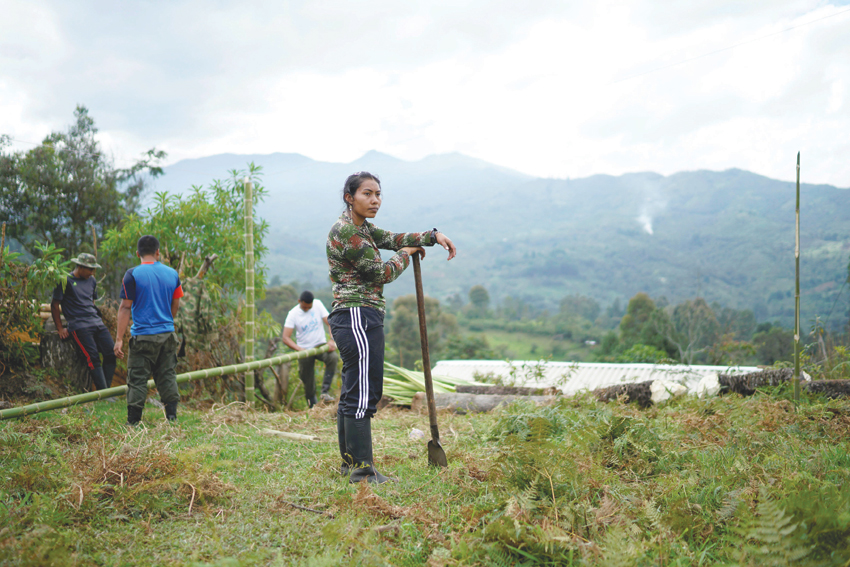

MOUNTAINS OF CAUCA, Colombia: Former fighters from Colombia’s Farc rebel group are handing over thousands of weapons and other materials to international officials in special camps, as the group’s six-month disarmament process continues.
The Revolutionary Armed Forces of Colombia (Farc) signed a peace agreement with the government late last year to put an end to their part in Latin America’s longest-running armed conflict, which has killed more than 220,000 people and displaced millions.
Around 8,000 weapons have been handed over to the United Nations to be stored in secure containers until they can be turned into three memorial statues. The rebels are expected to turn in all arms by June.
Members of the Jacobo Arenas rebel unit, which operated in mountains of Cauca province, were among 6,900 Farc fighters who left behind clandestine camps where they had lived for decades, crisscrossing the country on foot, by boat and by truck to get to 26 zones monitored by the UN.
The zones will be their homes for the foreseeable future as they complete judicial processes to determine whether they will serve special sentences for war crimes or receive amnesty. Ex-fighters will also reunite with long-lost families and make amends to victims.
Under the terms of the peace accord, the Farc, which began as a peasant uprising 52 years ago, is to form a political movement in the South American nation.
The Farc’s leadership has raised concerns about conditions in some of the camps, including the lack of permanent toilets and facilities such as gyms they say were agreed in the accord.
Some Farc members have told local media they will not hand over their weapons until the camps are more habitable for fighters, who are well used to rough-and-tumble living conditions in poverty-stricken rural areas.
The government says it is working as quickly as possible to finish each camp, that the Farc is partly responsible for construction and that the facilities are far superior to the tarp and bamboo lean-tos traditionally used by the rebels.
The accord has been heavily criticised for sparing rebels jail time for crimes committed during the conflict. A first version was narrowly rejected in a referendum last year, before being modified and passed by Congress. Authorities have said that about 300 rebels have refused to demobilise, but that may not be a full count, excluding so-called “militants” who worked undercover in cities and towns to help the Farc. — Reuters
Oman Observer is now on the WhatsApp channel. Click here



